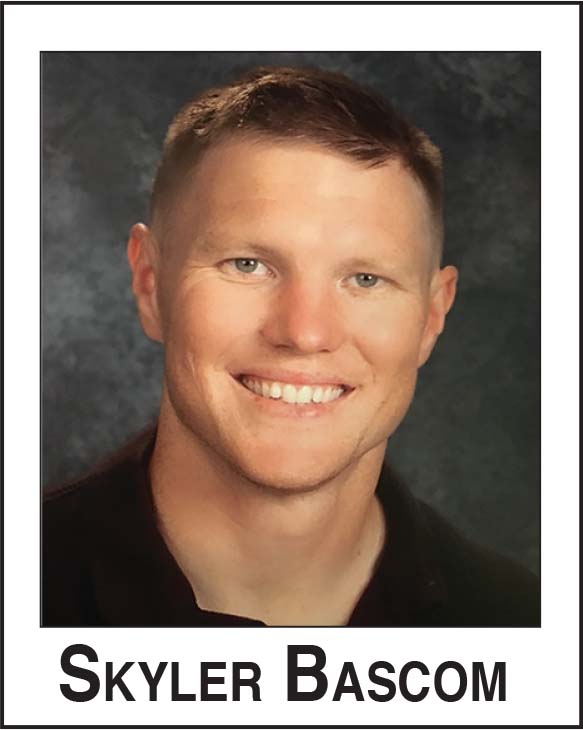By Skyler Bascom
Tim Grover offers a perspective that very few people can give in his book “Relentless: From Good to Great to Unstoppable.”
Grover was the long-time personal trainer of Michael Jordan, Kobe Bryant and Dwayne Wade. If you are not a basketball fan and don’t recognize these names, that is OK. To put it another way, Tim Grover was the long-time personal trainer of the highest achieving, most elite athletes we’ve seen in the last 50 years.
In “Relentless,” published in 2014, readers get an insider’s perspective into the mentality of what it takes to elevate one’s life from being great to being unstoppable. The principles offered in this book can be applied to all aspects of one’s life.
Through working with hundreds of athletes from all over the world, Grover developed a three-tier categorizing system that he shares for the first time in this book. The categories are “Coolers,” “Closers” and “Cleaners.” Again, these categories can be applied to all areas of life and are not sport-specific.
A “Cooler” is someone who waits to be told what to do. It is someone who does the bare minimum when it comes to work and life. As Grover puts it, “A Cooler makes you want to pay them less money.”
If you don’t take initiative on projects, if you choose the easy way out of most situations, and if you wait for others to give you orders, then do the bare minimum to get by, then you might be a Cooler. Do you know any people like this?
The second category is the “Closer.” A “Closer” is the well-calculated, well-studied person who prepares for almost every situation. As Grover puts it, “A Closer earns exactly what he is being paid for.”
In the athletic world a “Closer” is the one who studies game film to the point where he knows exactly what the other team is going to do. In the business world a “Closer” is the one who comes to each meeting prepared with answers and works diligently on getting work done. Where a “Cooler” waits to be told then does the bare minimum, a “Closer” does exactly what he or she is supposed to do when he or she is supposed to do it.
These types of workers, friends, family members, and bosses analyze situations and operate from their head. Do you have any “Closers” in your life?
The third category is the rarest of the three. Grover saves the term “Cleaner” for only the elite few.
The “Cleaner” doesn’t wait to be told what to do nor does the “Cleaner” operate from analysis. According to Grover, a “Cleaner” operates strictly from instinct. Grover spends a great deal of length talking about how a “Cleaner” gets his drive towards excellence because of the “dark primal side” pushing him each day.
A “Cooler” shows up to the celebration early and leaves late. A “Closer” shows up to the celebration, but leaves early with his or her friends. A “Cleaner” doesn’t care about the celebration. He or she just wants to get back to work.
Grover chooses the term “Cleaner” to describe the highest category of excellence because these are the people who come in and “clean up” the mess after everyone else. Like a janitor, they come in and do their job quietly and silently so that everyone else can do theirs.
They do not bring attention to themselves. They do not brag. They simply strive for excellence. So when the project is messy or the business is crumbling or the marriage is falling apart, people look for the “Cleaner” to come in and save the day.
Does this sound like you? Are you a “Cleaner?”
The majority of Grover’s book is spent detailing his encounters with “Cleaners” and how their work ethic, mental toughness, and fortitude separates them from everyone else.
I want to highlight some of these “Cleaner” characteristics because I desire to have them in my own life and I think our city/culture would improve if more people adopted a “Cleaner” mentality.
First, “Cleaners” don’t talk, they do. One of the key quotes from the book is “those who know, don’t talk. Those who talk, don’t know.”
Grover contends that a true “Cleaner” is someone who doesn’t talk about what he or she is going to do, but simply does the work. After the work is done, they do not brag about it or bring attention to themselves, but they simply look towards the next thing to be accomplished.
For example, when Michael Jordan won his third NBA championship, he held up four fingers, indicating what he was going for next. When he won his forth NBA championship, he held up five fingers. When he won his fifth NBA championship, he held up six fingers.
This is a Cleaner mentality. Not talking about what you are going to do or reflecting on what you did, but simply doing the work that is necessary.
Secondly, “Cleaners” outwork everyone else. A “Cleaner” does not rest on talent and skills, but outworks those around him.
For example, the night Kobe Bryant was drafted into the NBA, most of his draft-mates went out celebrating with friends and family over dinner. Not Kobe. Kobe went to the gym. After each game during Michael Jordan’s career, Tim Grover would simply ask Bryant “5, 6, or 7?”
The question meant “are we going to work out at 5 a.m., 6 a.m., or 7 a.m.?”
Jordan would give him a number and they would meet in the gym the next day.
Grover observed that the greatest athletes, coaches, CEOs, teachers, bus drivers, or parents are those that put in the most hours working on their craft.
While others were still in their warm beds, “Cleaners” are working away.
Third, “Cleaners” demand excellence. “Cleaners” do not compete with anyone but themselves. One of the main characteristics of a “Cleaner” is that he or she does not tolerate mediocrity. Jordan, for example, would only drive a freshly washed car. This was not because he was a prima dona. This was because he was concerned that every detail of his life represented what he wanted to accomplish in basketball.
This makes me think of the many log truck drivers I know. Many of the best, hardest-working and top-earning trucking companies around Lebanon wash their trucks every night. After a long 12- or 13-hour day, these drivers will make sure their trucks are washed in the morning. This is a “Cleaner” mentality and this attention to detail separate many truck companies from the competition.
The same is true of Nancy Randall’s CrossFit classes. Although I am an amateur at CrossFit, I can see the commitment to excellence that Nancy Randall and her coaching team put into each and every exercise at Willamette Valley CrossFit. From how we stretch to how we think, everything is programmed, down to the smallest of details.
Coach Ty Tomlin’s commitment to excellence with Lebanon High School is another fine example of having a “Cleaner” mentality.
In 2017 the hallways were heavily traveled during class periods and many educators felt like they were losing the cell phone battle. I remember the overwhelming sense of relief and thankfulness that staff members had when he took over as Dean of Students in 2018. He demands excellence and holds those around him to the same standards.
About two months ago Jonas Menguita earned the position as Mill Manager at Weyerhaeuser, Santiam Lumber. One of the strongest qualities of a cleaner is that they “don’t talk, they just do.” As I’ve gotten to know Jonas, I’ve watched him master this quality. He is meek, humble, and never brags, but he has made a career out of getting results done, first in the military, then earning two master’s degrees, and now as the Mill Manager. When I think of a silent “Cleaner,” I think of Jonas Menguita.
I highlighted just four “Cleaners” that come to mind. Do you know of other “Cleaners” in Lebanon? I’d love to read an email or two, highlighting some “Cleaners” in Lebanon and how their relentless mentality to their work positively impacts our community. You can email me at [email protected]. You can also listen to my podcast dedicated to helping at-risk-youth at mentoredpodcast.org and let me know whether my podcasting skills are in the “Cooler,” “Closer” or “Cleaner” category.
– Skyler Bascom is a local school counselor and a pastor at a local church. His podcasts are posted at mentoredpodcast.org. He can be reached at (541) 405-1511 or by email at [email protected].





